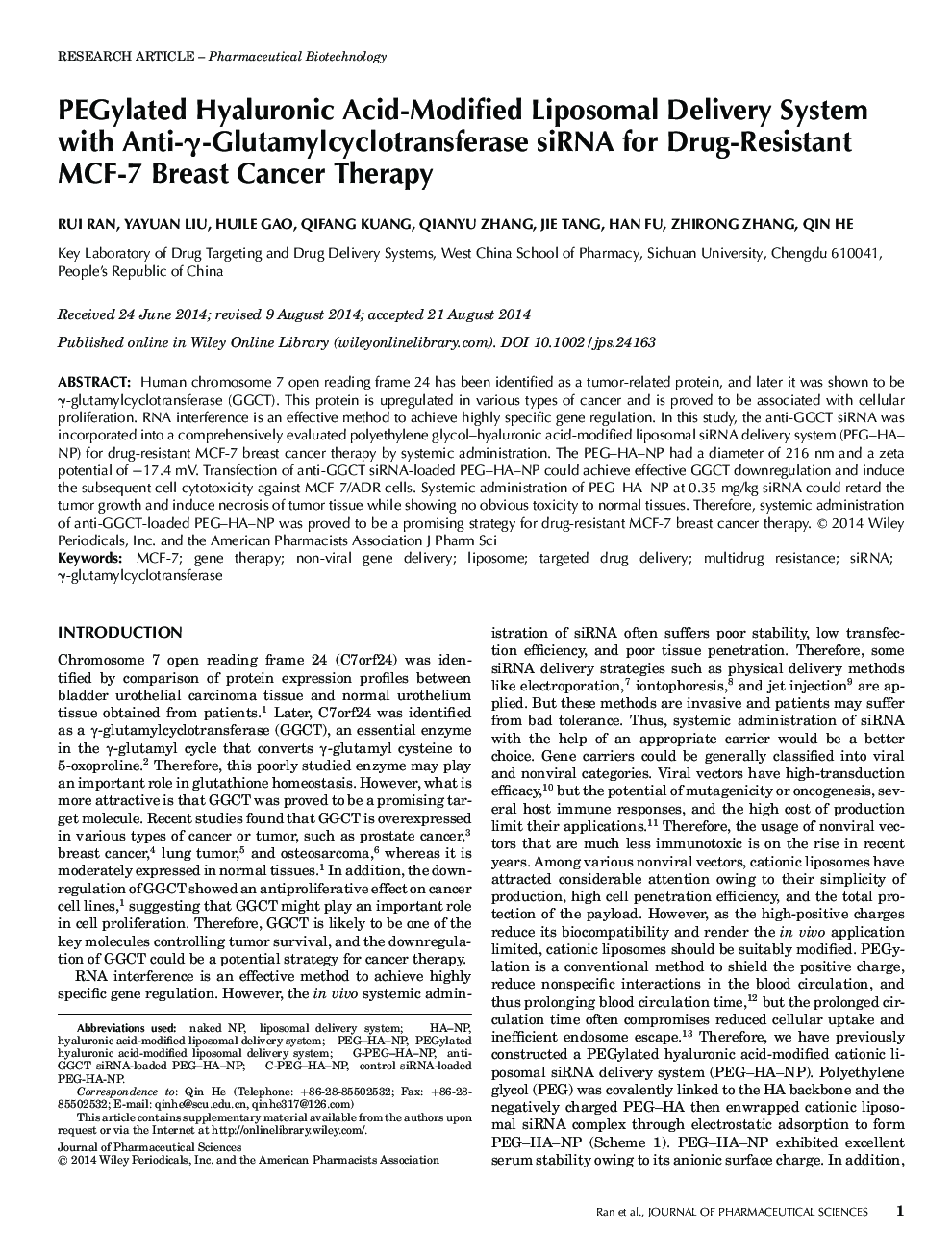| Article ID | Journal | Published Year | Pages | File Type |
|---|---|---|---|---|
| 10162170 | Journal of Pharmaceutical Sciences | 2015 | 9 Pages |
Abstract
Human chromosome 7 open reading frame 24 has been identified as a tumor-related protein, and later it was shown to be γ-glutamylcyclotransferase (GGCT). This protein is upregulated in various types of cancer and is proved to be associated with cellular proliferation. RNA interference is an effective method to achieve highly specific gene regulation. In this study, the anti-GGCT siRNA was incorporated into a comprehensively evaluated polyethylene glycol-hyaluronic acid-modified liposomal siRNA delivery system (PEG-HA-NP) for drug-resistant MCF-7 breast cancer therapy by systemic administration. The PEG-HA-NP had a diameter of 216 nm and a zeta potential of â 17.4 mV. Transfection of anti-GGCT siRNA-loaded PEG-HA-NP could achieve effective GGCT downregulation and induce the subsequent cell cytotoxicity against MCF-7/ADR cells. Systemic administration of PEG-HA-NP at 0.35 mg/kg siRNA could retard the tumor growth and induce necrosis of tumor tissue while showing no obvious toxicity to normal tissues. Therefore, systemic administration of anti-GGCT-loaded PEG-HA-NP was proved to be a promising strategy for drug-resistant MCF-7 breast cancer therapy.
Keywords
Related Topics
Health Sciences
Pharmacology, Toxicology and Pharmaceutical Science
Drug Discovery
Authors
Rui Ran, Yayuan Liu, Huile Gao, Qifang Kuang, Qianyu Zhang, Jie Tang, Han Fu, Zhirong Zhang, Qin He,
